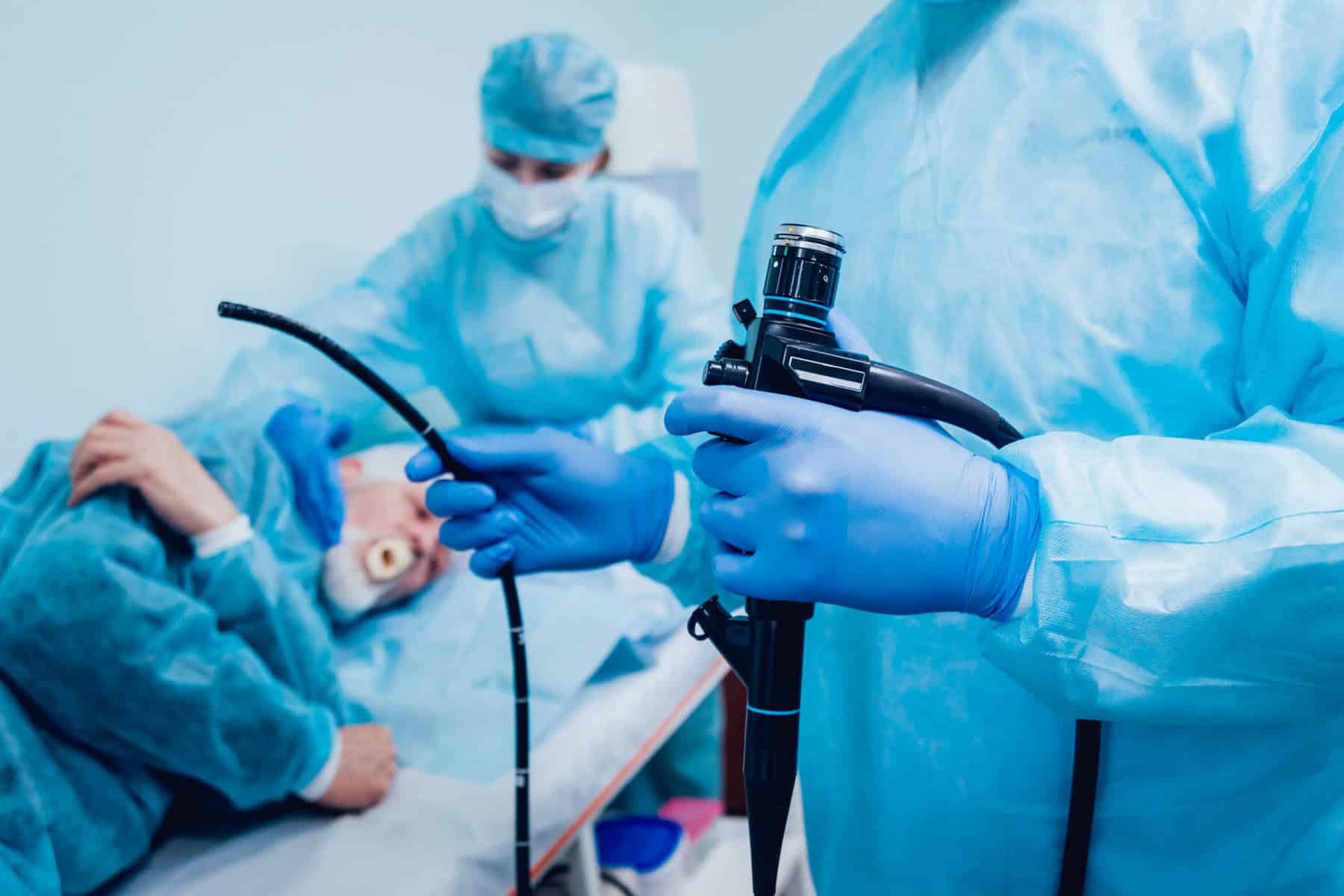Performing Colonoscopy
A colonoscopy is a vital diagnostic procedure used to examine the colon and rectum for abnormalities. This minimally invasive test plays a crucial role in detecting colorectal cancer, identifying polyps and diagnosing various digestive conditions.

Overview of Colonoscopy
Colonoscopy is a diagnostic procedure that allows our specialists to examine the inner lining of the colon and rectum using a flexible, camera-equipped tube. It is commonly performed to investigate symptoms such as persistent changes in bowel habits, rectal bleeding and unexplained abdominal pain. The procedure is also crucial for colorectal cancer screening and the removal of polyps before they develop into cancer.


Colonoscopy Procedure – What to Expect
Preparation is essential for an accurate colonoscopy, requiring patients to follow specific dietary guidelines, typically a clear liquid diet the day before the procedure. A bowel cleansing solution is used to ensure the colon is entirely clear for optimal visibility during the examination. The procedure itself is usually performed under sedation for patient comfort, during which a specialist inserts a colonoscope into the rectum and carefully advances it through the colon to examine the lining. If necessary, small polyps can be removed and tissue samples (biopsies) may be taken for further analysis. The entire procedure typically lasts between 30 to 60 minutes. Afterwards, patients are monitored in a recovery area until the sedation wears off, usually within an hour. Mild bloating or cramping may occur but this generally subsides within a few hours. Results from the colonoscopy may be discussed on the same day or provided within a few days, depending on whether biopsies were taken.
Benefits of a Colonoscopy
A colonoscopy is one of the most effective methods for early detection of colorectal cancer. The procedure is used to investigate positive FIT tests and can identify and remove pre-cancerous polyps before they develop into cancer, significantly reducing the risk of bowel cancer. Additionally, colonoscopies help diagnose conditions such as Crohn’s disease, ulcerative colitis, diverticulosis, and other inflammatory bowel disorders. Regular screenings provide peace of mind and support long-term digestive health by detecting and addressing concerns before they progress into more severe conditions.

FAQs
- How do I prepare for a colonoscopy?
Preparation involves following a special diet the day before the procedure and taking a prescribed bowel-cleansing solution to ensure a clear view of the colon. Your specialist will provide detailed instructions to help you prepare.
- Is a colonoscopy painful?
Most patients do not experience pain during a colonoscopy as sedation is typically used. Some may feel mild cramping or pressure, but discomfort is generally minimal.
- How long does the procedure take?
Recovery from a colonoscopy is generally quick, with most patients resuming normal activities the following day. It is advisable to rest on the day of the procedure, as the effects of sedation can linger for a short period.
- What conditions can a colonoscopy detect?
A colonoscopy can help diagnose colorectal cancer, inflammatory bowel disease (IBD), polyps, diverticulosis and other abnormalities affecting the colon and rectum.
- How often should I have a colonoscopy?
Screening guidelines vary based on risk factors, but generally, individuals over 50 or those with a family history of colorectal cancer should have a colonoscopy every 5 to 10 years. Your doctor will advise on the best screening schedule for you.

Why Choose The Forbury Clinic?
At The Forbury Clinic, we are committed to providing expert coloproctology care with state-of-the-art diagnostic procedures such as colonoscopies. Our experienced specialists ensure accurate, safe and comfortable screenings for all patients. We prioritise patient well-being by offering comprehensive support before, during and after the procedure. With our advanced facilities and patient-centred approach, we deliver high-quality care for your digestive health needs.